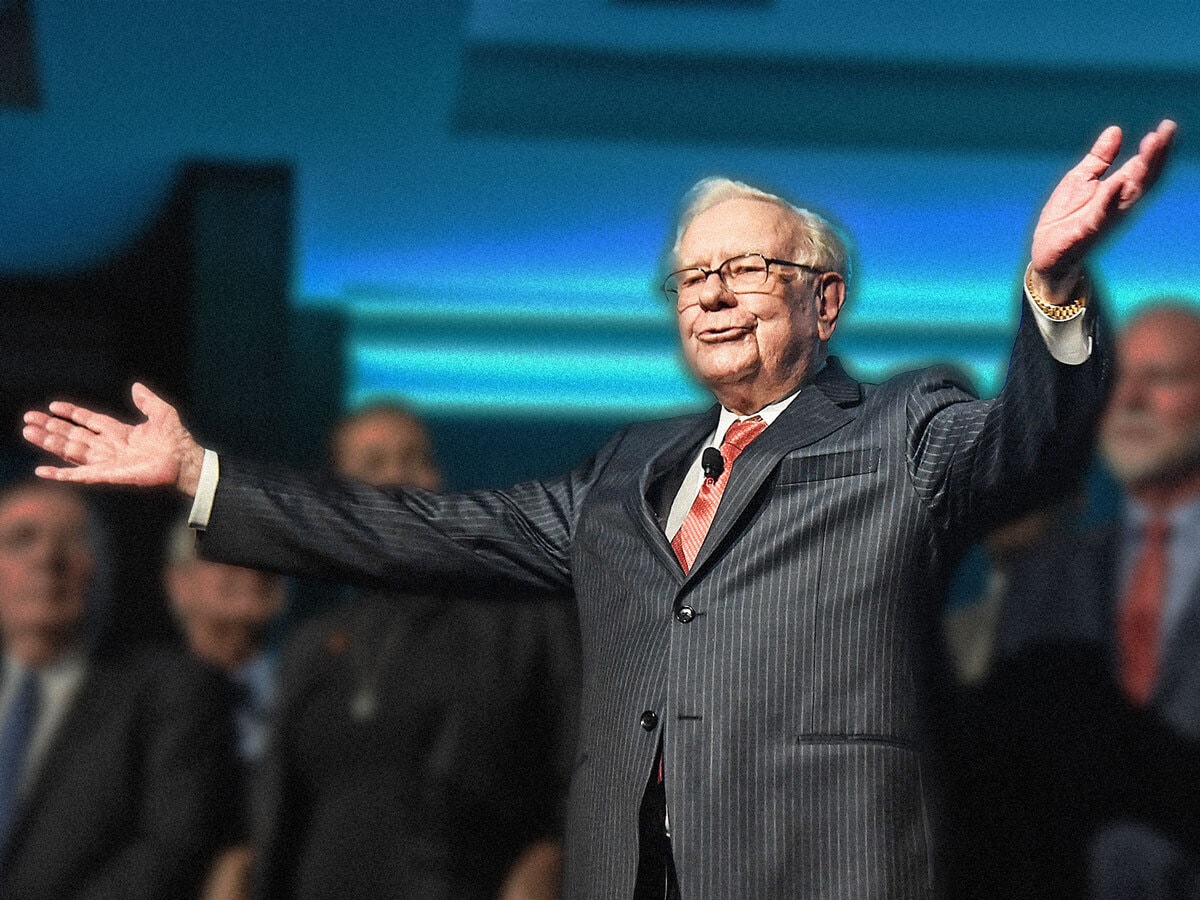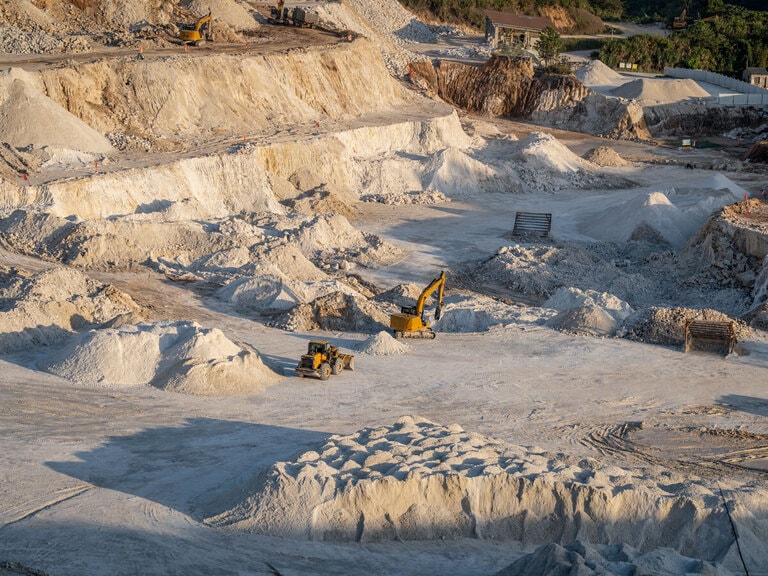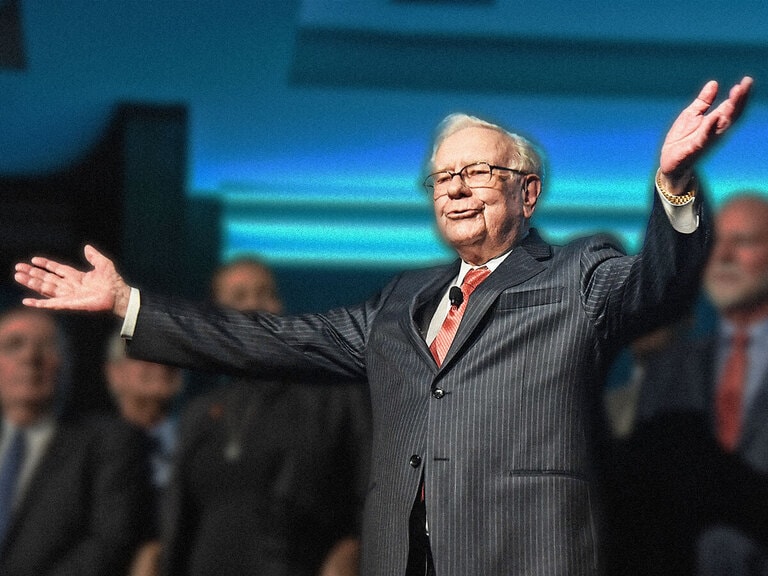The stock market has been thrown into chaos by US President Donald Trump’s erratic tariff policy.
It may seem that recent movements would have been impossible to predict, given the fact they stem from apparently impromptu decisions from the White House.
However, if 94-year-old Warren Buffett did not exactly predict the details, he certainly seems to have anticipated the outcomes.
What’s Up with the Stock Market?
It is unlikely that investors will be unaware of Donald Trump’s most recent Rose Garden address, which took place on April 2, 2025 — his so-called “Liberation Day”.
Tariffs of up to 50% — including 34% for China — were initially threatened, and saw the S&P 500 tank 12.14% between April 2 and April 8.
On April 9, Trump performed a near-complete about-face, reverting to a blanket 10% US tariff for all countries except China, whose tariff was raised almost four-fold to 125%. This saw the stock market rebound somewhat, with the S&P 500 up 9.52% to close on April 9.
Nonetheless, as of April 10, investors had collectively lost $10trn in the fiasco, in spite of a tip to buy from Trump himself.
How Did Buffett Weather the Storm?
While Elon Musk’s wealth has dropped by $134.7bn so far in 2025, Buffett’s wealth has increased by $11.5bn in the same period. And while many investors and hedge funds were left scrabbling following the tariff-induced dip, Buffett’s Berkshire Hathaway [BRK-B] lost just 8.38% between April 2 and April 8, and has regained almost all of this already, closing just 1.52% below its April 2 price on April 14.
So, which elements of the nonagenarian investor’s famed philosophy sheltered Berkshire from the worst of the recent movements?
Cash Only?
In his FY 2024 letter to investors, released in February 2025, Buffett addressed the fact Q4 saw the tenth consecutive increase in cash reserves for Berkshire Hathaway.
Seeking to reassure investors that “Berkshire will never prefer ownership of cash-equivalent assets over the ownership of good businesses”, the fact remains that reserves reached a record $334.2bn at the end of last year.
While investors seemed to trust the process — OPTO examined how Berkshire’s share price reacted to the letter — the increase certainly raised eyebrows.
In the context of recent events, however, the move toward cash seems to have been prescient.
Bad Apples
Buffett began Berkshire’s significant stake in Apple [AAPL] back in 2016, and started to offload shares in late 2023. By Q2 2024, the firm had halved its stake in Apple, with a further quarter being sold in Q3.
While Q4 saw significant reductions in various stakes, including Bank of America [BAC] and Citigroup [C], there were no further sales of AAPL stock.
Still, with the firm’s stake in the tech giant sitting at less than two-thirds its previous size, Buffett managed to avoid too much exposure to the 22.99% loss the iPhone maker experienced between April 2 and April 8.
Trump’s announcement that tariffs were being frozen, and the subsequent news that smartphones would be exempt from tariff increases altogether, could only go so far to restore investors’ faith in AAPL, which was still down 9.54% on its April 2 price as of April 14’s close.
Tariff Talk
Buffett is no stranger to protectionist policies. With an investing career dating back to the 1940s, he has weathered tariffs put in place by administrations from Nixon to Bush, as well as during Trump’s first term, in 2018.
His stance on tariffs is clear: in an interview in March, he called them “an act of war, to some degree”.
A contributing factor to his increase in cash reserves and short-term Treasury Bills could well be his conviction that an out-and-out trade war would “be bad for the whole world”.
Focusing on Inherent, Long-Term Value
While Buffett vocally disagrees with tariffs, his investment philosophy over the last 80 years has often prioritized domestic companies, from US-based insurance firm GEICO to Coca-Cola [KO], a consumer staple in the US as well as internationally.
He generally prefers firms with enduring brand status, durable competitive advantages and/or a baked-in essentiality. The risky plays of Cathie Wood are far from his approach, and it seems this has shielded Berkshire Hathaway against the worst impacts of the tariffs.
Furthermore, in his Q4 letter to investors, Buffett acknowledged that “year-by-year numbers will swing wildly” when it comes to the value of securities, but he affirmed that he and his team believe it is “highly likely that gains will prevail” in their portfolio.
While Buffett’s philosophy may lack the glamour of those investors and funds who chase shorts and quick gains, his performance over the past fortnight speaks to the potential of a steadier approach.
Conclusion
Warren Buffett’s 94 years of life and 83 years of investment practice mean he has a unique perspective on current financial events. If hyperinflation and global recessions are to come, Berkshire Hathaway investors can at least reflect that Buffett has seen — and survived — it all before.
Disclaimer Past performance is not a reliable indicator of future results.
CMC Markets is an execution-only service provider. The material (whether or not it states any opinions) is for general information purposes only, and does not take into account your personal circumstances or objectives. Nothing in this material is (or should be considered to be) financial, investment or other advice on which reliance should be placed. No opinion given in the material constitutes a recommendation by CMC Markets or the author that any particular investment, security, transaction or investment strategy is suitable for any specific person.
The material has not been prepared in accordance with legal requirements designed to promote the independence of investment research. Although we are not specifically prevented from dealing before providing this material, we do not seek to take advantage of the material prior to its dissemination.
CMC Markets does not endorse or offer opinion on the trading strategies used by the author. Their trading strategies do not guarantee any return and CMC Markets shall not be held responsible for any loss that you may incur, either directly or indirectly, arising from any investment based on any information contained herein.
*Tax treatment depends on individual circumstances and can change or may differ in a jurisdiction other than the UK.
Continue reading for FREE
- Includes free newsletter updates, unsubscribe anytime. Privacy policy





